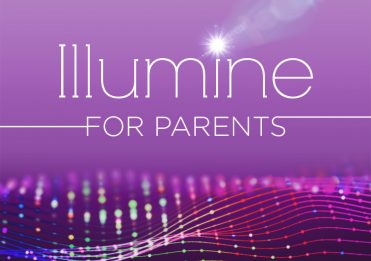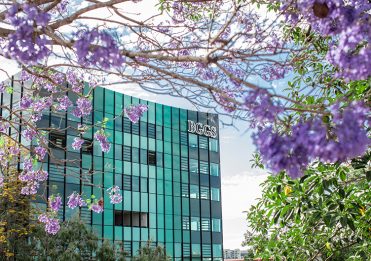Ms Gerri Bernard, Head of Curriculum Development—Science
‘The saddest aspect of life right now is that science gathers knowledge faster than society gathers wisdom.’ – Isaac Asimov
‘Why?’ Although it may not be the first question a young child asks, any parent can attest to the fact that it soon becomes one of the most frequent. ‘Why is the sky blue?’ ‘Why is water wet?’ ‘Why do I have to sleep?’ These questions may seem simple, perhaps even silly, but they do not have simple answers. Instead, they reveal the scientific habit of mind that all people fundamentally possess and reinforce the idea of learning as a generative process in which learners seek to construct their own meanings (Chin & Osborne, 2008).
The question of ‘why’ was certainly prevalent in the minds of our students during the lead up to the recently concluded lockdown measures. As staff coordinator of the School’s Doctors Without Borders Service club, I saw the girls grapple with COVID-related issues at our final meeting before the School’s transition to remote learning. Many asked why the virus seemed to be spreading rapidly in some places, but not others, and why it seemed to affect older adults more severely than people their own age. Their need for an open and scientific dialogue that addressed their concerns was evidenced by the number of new members who joined that meeting upon hearing our discussion topic would be coronaviruses and COVID-19.
Unfortunately, not all of the information in our media has been aligned with that spirit of scientific inquiry. Misinformation on social media has been extensive and pernicious in the time of COVID-19, and we have all had to contend with the unsettling notion that there are people who believe (or claim to believe) that SARS-CoV-2—the scientific name for the virus behind the COVID-19 Pandemic—was deliberately manufactured in a Chinese laboratory (Borger, 2020) or that the new 5G networks in their area have the ability to transmit the disease to people (Hunter, 2020).
The spread of such baseless and unscientific claims reveals a disturbing lack of scientific literacy in our general population. This apathy for scientific knowledge and inquiry, even with subject matter that is highly relevant to everyday life, is corroborated by multiple studies. For example, a project conducted by the CSIRO in March of this year found that 34 per cent of surveyed Australians wrongly thought that antibiotics can cure the flu and that more than 90 per cent did not know the difference between bacteria and viruses (Outbreak, 2020). In addition, because enough of the Australian population erroneously believe that 5G networks are a possible cause of COVID-19,the Australian Parliament felt the need to address such ‘extensive misinformation’ in a recent parliamentary report (House of Representatives Standing Committee on Communications and the Arts, 2020, pp.41)
With these alarming statistics in mind, we in the Science Faculty at BGGS can identify two key categories of responsibility regarding our work with young people. On the one hand, we must adequately prepare those students who wish to undertake careers in scientific fields with the specialist, high-level knowledge they will need to succeed in their endeavours. On the other hand, and perhaps more importantly, we understand that not all of our students will choose to pursue scientific careers, and that we must arm them with the scientific literacy skills they will need to make critical decisions throughout their lives.
The OECD Programme for International Student Assessment (PISA), in agreement with much of science educational theory, recognises two domains of scientific literacy: knowledge of science, that is, an understanding of basic physical, chemical, and biological facts and concepts; and knowledge about science, which incorporates awareness of the processes of scientific inquiry (OECD, 2018). While some factual knowledge is essential to gain a scientific understanding of the world, the great science communicator Carl Sagan perhaps put it best when he said, ‘Science is a way of thinking much more than it is a body of knowledge.’ To that end, we strive to ensure students possess a deep familiarity with the fundamental business of science—they can ask the right question in a given situation, understand what would constitute a proper answer to that question, and can discern whether the evidence used to support that answer is relevant and reliable.
Our students will enter an adulthood backgrounded by enormous global challenges in the areas of climate change, food and water availability, energy consumption and disease. The solutions to these problems will require scientific thinking and, while we are certain that some of our girls will be at the forefront of the research that will eventually resolve some of these critical issues, we also hope that all of our students will have gained the scientific awareness they will need to analyse critically and contribute effectively to an informed global debate on scientific and technological issues. When they leave our classrooms we hope that they will continue asking those all-important ‘why?’ questions, and that they will carry with them the memory of what it means to think scientifically when forming their answers: to hypothesise; to gather credible evidence; and to justify their conclusions with that evidence.
References
Borger, J. (2020, May 4). Mike Pompeo: ‘enormous evidence’ coronavirus came from Chinese lab. The Guardian. https://www.theguardian.com/world/2020/may/03/mike-pompeo-donald-trump-coronavirus-chinese-laboratory
Chin, C., & Osborne, J. (2008). Children’s questions: a potential resource for teaching and 111 learning in science. Studies in Science Education, 44 (1), 1-39. https://doi.org/10.1080/03057260701828101
House of Representatives Standing Committee on Communications and the Arts. (2020, March). The Next Gen Future: Inquiry into the deployment, adoption and application of 5G in Australia. https://parlinfo.aph.gov.au/parlInfo/download/committees/reportrep/024373/toc_pdf/TheNextGenFuture.pdf;fileType=application%2Fpdf
Hunter, F. (2020, May 18). Government lashes ‘utterly baseless’ 5G-coronavirus conspiracy theories. The Sydney Morning Herald. https://www.smh.com.au/politics/federal/government-lashes-utterly-baseless-5g-coronavirus-conspiracy-theories-20200518-p54u06.html
Outbreak. (2020). Public information key to combating rising superbug threat. OUTBREAK. https://outbreakproject.com.au/2020/05/14/public-information-key-to-combatting-rising-superbug-threat/
OECD. (2018). PISA for Development Science Framework. In PISA for Development Assessment and Analytical Framework: Reading, Mathematics and Science. OECD Publishing. https://www.oecd-ilibrary.org/education/pisa-for-development-assessment-and-analytical-framework_9789264305274-en



